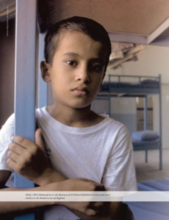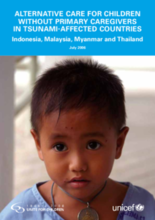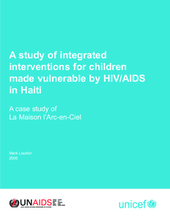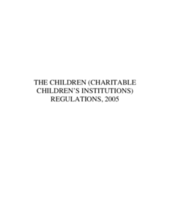Displaying 1371 - 1380 of 1463
A website that contains statistical information on children in 27 countries across Central and Eastern Europe. The site contains relevant child protection indicators, including the number of children in institutional care.
A brief 2-page document that highlights the importance of child participation, post care planning, guarding against abuse, and connecting residential institutions with the surrounding community.
This is a chapter from the United Nations Secretary-General’s Study on Violence Against Children that specifically explores the factors contributing to violence against children in institutional care and justice institutions. This chapter includes sections on the sources of violence against children in institutional care, the impact of institutional care on children’s health and development, and the populations of children most likely to become institutionalized.
An assessment of alternative care responses for children without primary caregivers in tsunami-affected regions of Malaysia, Myanmar, Indonesia, and Thailand. Includes good practices, recommendations, and detailed country reports.
Detailed examination of debate over institutional and alternative care methods for children without parental care. Includes comprehensive framework for collective action.
Examines a community-based care program for children living with HIV in Haiti called Arc-en-Ciel. Includes an overview of services provided (residential care, home based care, and community mobilization) and lessons learned.
A brief 2-page overview of what steps should be taken if and when a social worker or other community worker admits a child to a residential institution.
Results of a survey examining the quality of institutional care in Sri Lanka. Highlights gaps in existing policies and procedures.
This document outlines the regulations for charitable children's institutions (CCIs) in Kenya.
The chapters in this Research Note are grouped in three sections. The first section (chapters 2–5) presents the international experiences. The second (chapters 6–7) presents the Russian background, whereas the third section (chapter 8–9) offers an updated presentation of Russian realities as to the placement of orphans.









